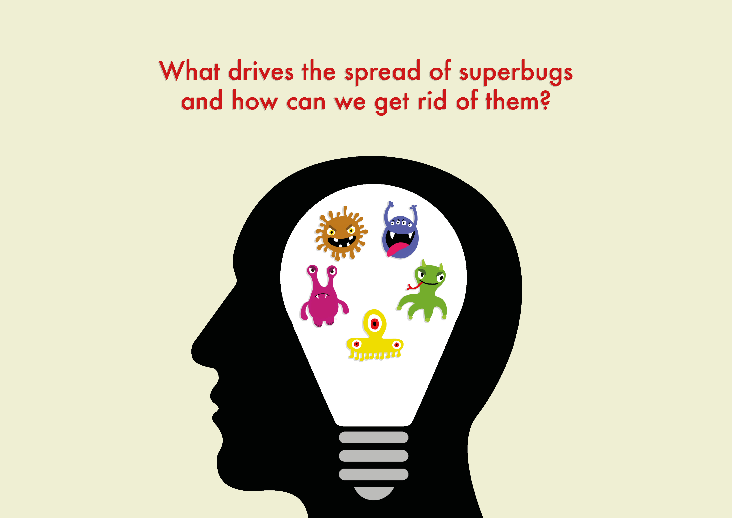Antibiotic resistance (AR) is a natural phenomenon, but recent elevated antibiotic use has increased levels of AR, making many antibiotics useless in the treatment of bacterial infections. AR levels are rising on global scales, but especially in places without clean water and adequate sanitation, although it is not known by many. Therefore, a better understanding of peoples’ knowledge, attitudes, and practices (KAP) about AR is needed to develop interventions aimed at behaviour change, which can be fine-tuned and appropriately implemented. This project compares KAP responses around AR drivers, spread, and mitigation options among and between various cohorts in a broad range of disciplines (including both professional and students) as well as members of the public. We currently are focusing on cohorts located in Delhi (India), the UK, and Israel but plan to expand our research elsewhere in the world. Our survey is currently open to select Newcastle University students and staff. Our goal is to delineate KAP barriers to implementing different technical and social AR mitigation options. We also want to identify possible education targets and actions needed to promote changes in national and international policy.
Academic staff: Professor David Graham (School of Engineering); Professor Pauline Dixon and Dr Steve Humble MBE (School of Education, Communication and Language Sciences); Professor Georg Lietz (Human Nutrition Research Centre); Professor Eran Friedler (Technion Institute of Technology); and Dr Mical Paul, MD (Rambam Healthcare Center)
Researchers: Dr Myra Giesen (School of Engineering) and Dr Gopal Iyer (School of Education, Communication and Language Sciences)
Contact: david.graham@newcastle.ac.uk
Sponsors: EPSRC & Newcastle University’s Global Challenges Academy
Partners: CURE (India)
Start Date: 2019
End Date: 2020

